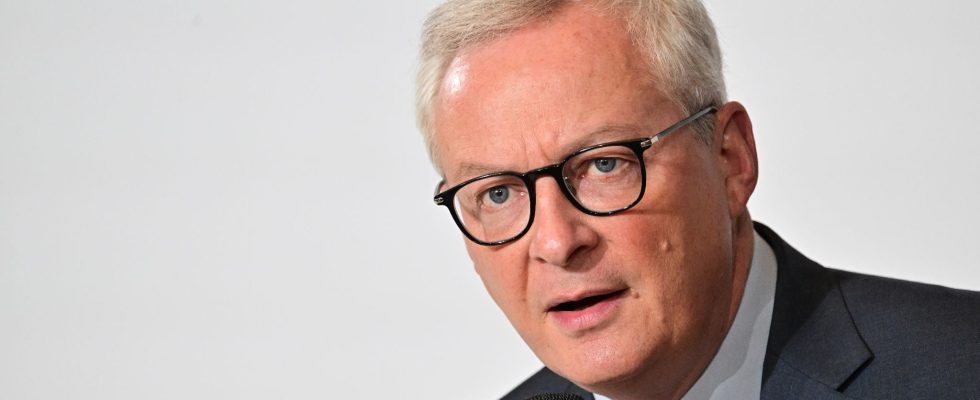The agreement on the end of careers at SNCF continues to spark controversy: the latest episode, the summoning of CEO Jean-Pierre Farandou by Bruno Le Maire to Bercy so that he can “be held accountable”. “An agreement has been signed which effectively commits the balances of the pension reform and the financial balances of the SNCF. I was not warned,” declared Bruno Le Maire, interviewed this Thursday, May 2 on BFMTV/RMC.
Signed on April 22 by the four representative unions of the SNCF, a very rare event in the railway group, the agreement will allow railway workers to cease their activity before retirement, with more than a year not worked and paid at 75%. according to categories, sparking accusations of misuse of the pension reform implemented last year.
The minister summoned the boss of the SNCF “in the next few days” so that he “reports on this agreement which gives a feeling of double standards and which is very provocative for many of our compatriots who work hard and who accepted the pension reform.
Language that is the opposite of that of the Minister for Transport Patrice Vergriete. Questioned on the subject on Tuesday in the National Assembly, he assured that “the taxpayer will not pay a cent to finance this agreement”. “There is no longer a monopoly, no more excuses for the deficit since the State took over the SNCF debt once and for all – 35 billion euros in 2018. The customer is also protected by the game competition. It is therefore internally, with productivity gains, that the SNCF will have to finance this agreement”, he recalled.
Circumvention of the reform
A position which is that of the government, his office told AFP on Thursday. Upon the summons of Jean-Pierre Farandou, Bruno Le Maire “is in his role as Minister of the Economy” by receiving the boss of a public group, he simply reacted.
The agreement between unions and management aims to improve an existing early retirement system which dates from 2008. It will allow, for example, drivers to begin an “early cessation of activity” 30 months before their retirement with 15 months of paid work. at 100% and 15 months off work paid at 75%. For the controllers, who had caused massive train cancellations in the middle of the school holiday weekend in February with a strike, the agreement is even more advantageous since it runs for 36 months, 18 of which are not worked and paid at 75%.
The right immediately attacked this system, described as “circumvention of pension reform” by the boss of LR senators, Bruno Retailleau. Even the former Minister of Transport Clément Beaune said he was “a little shocked”, fearing an increase in prices for users.
Profitable group
Reactions which aroused the ire of the railway unions. “It clearly demonstrates that when we are able to negotiate an agreement where the issue of wealth distribution is raised, that poses a problem, particularly for right-wing political leaders,” denounced the general secretary of the CGT to AFP. -Railway workers, first union at SNCF, Thierry Nier. This type of system “exists in other professions, for example among truck drivers, end-of-activity leave (CFA) allows you to leave five years earlier. There are plenty of big companies that have this,” replied Fabien Villedieu, from Sud-Rail. “SNCF is the most profitable railway company in Europe so it has the financial means to absorb these measures,” according to him. The public railway group generated 1.3 billion euros in profit in 2023, after 2.4 billion in 2022. “At what point is it scandalous that a company decides to manage the wealth it has created”, asks the general secretary of the CFDT-Cheminots, Thomas Cavel.
In addition to his summons to Bercy, Jean-Pierre Farandou is called to explain himself before the Senate’s committee on regional planning and sustainable development next Tuesday to discuss the “worrying consequences of the agreement”. His future is dotted since he is still awaiting a renewal of his mandate which must take place before the SNCF general meeting on May 13.
